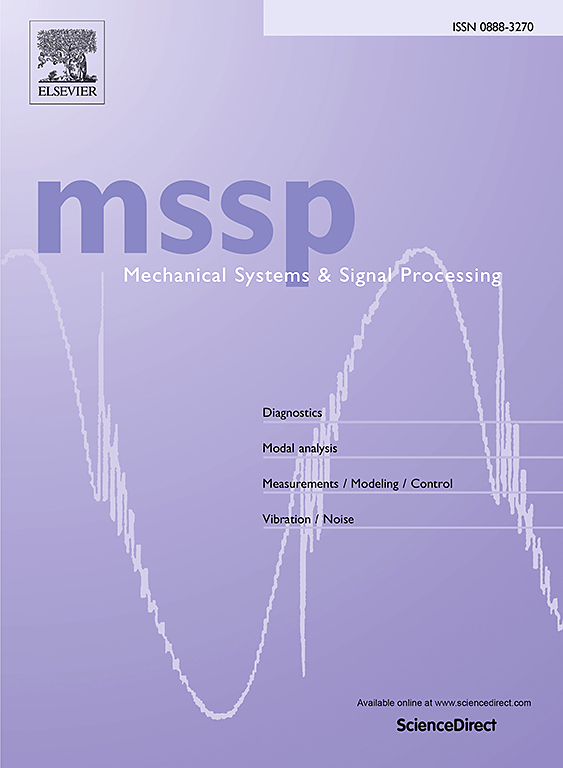基于柔性体元件的滚珠丝杠三动力学模型
IF 7.9
1区 工程技术
Q1 ENGINEERING, MECHANICAL
引用次数: 0
摘要
滚珠丝杠的动态执行精度受到丝杠柔性变形和滚珠-沟槽界面行为(如摩擦、刚度和阻尼)的显著影响。然而,很少有动力学研究考虑到滚珠丝杠的丝杠柔性变形和摩擦界面行为。在本研究中,我们建立了一个包含螺杆柔性变形和润滑界面行为的动力学模型。使用 6 自由度 Timoshenko 梁元素完成了螺杆/螺母的离散化。滚珠-沟槽界面的摩擦学特性由混合润滑模型求解。与实验测试的螺母加速频率的比较验证了理论模型的正确性。在此基础上,分析了螺母运动、螺母位置和粗糙表面对动态响应的影响。随着时间的增加,螺杆轴向位移以一定的斜率减小,并伴有周期性振动。不同螺母位置的轴轨迹中心相距甚远。从赫兹、光滑表面到粗糙表面,界面刚度系数减小,螺母振动振幅增大。新颖的摩擦动力学模型可为滚珠丝杠的故障诊断和性能优化提供理论依据。本文章由计算机程序翻译,如有差异,请以英文原文为准。
A tribo-dynamics model of ball screws based on flexible body element
Dynamic actuation accuracy of ball screws is dramatically affected by screw flexible deformation and the behaviors of ball-groove interface such as friction, stiffness and damping. However, few dynamics studies have considered the screw flexible deformation and rubbing interface behaviors in ball screws. In this study, a dynamics model is developed by including both the screw flexible deformation and lubrication interface behavior. Discretization of the screw/nut is completed using the 6 degree-of-freedom Timoshenko beam element. The tribological properties of ball-groove interface are solved by the mixed lubrication model. Comparison with experimentally tested nut acceleration frequencies verifies the correctness of theoretical model. On this basis, the effects of nut motion, nut position and rough surface on the dynamic response are analyzed. With the increase of time, the screw axial displacement decreases with a certain slope and is accompanied by periodic vibrations. The centers of axis trajectories at different nut positions are far apart. From Hertz, smooth surface to rough surface, the interface stiffness coefficient decreases and the nut vibration amplitude grows. The novel tribo-dynamics model can provide a theoretical basis for fault diagnosis and performance optimization of ball screws.
求助全文
通过发布文献求助,成功后即可免费获取论文全文。
去求助
来源期刊

Mechanical Systems and Signal Processing
工程技术-工程:机械
CiteScore
14.80
自引率
13.10%
发文量
1183
审稿时长
5.4 months
期刊介绍:
Journal Name: Mechanical Systems and Signal Processing (MSSP)
Interdisciplinary Focus:
Mechanical, Aerospace, and Civil Engineering
Purpose:Reporting scientific advancements of the highest quality
Arising from new techniques in sensing, instrumentation, signal processing, modelling, and control of dynamic systems
 求助内容:
求助内容: 应助结果提醒方式:
应助结果提醒方式:


